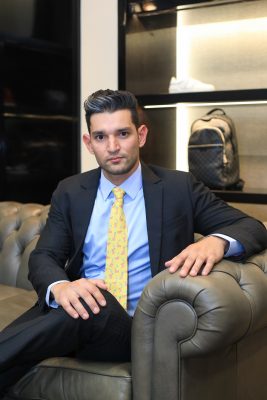We all love a bargain, but how do you know you’re actually buying the real deal?
Police recently seized a container filled with fake Louis Vuitton, Gucci and other counterfeit designer clothing estimated to be worth around R400 million in Durban.
“South Africa has become a hotspot for ‘triple A-grade’ fakes – replicas of luxury items that are quite difficult to distinguish from the original,” says Michael Zahariev, co-founder of luxury reseller and authenticator, Luxity.
The proliferation of these items is largely due to scammers increasingly peddling them online, with websites accounting for 41% of sales, followed by online marketplaces (32%) and social media sites (28%). “Most people who buy from a flea market know they are getting a fake but many of those buying through online channels like Instagram aren’t aware and are being duped,” he explains.
“This is one of the reasons why we double authenticate every item we buy with both an in-house authenticator and a third party. Unfortunately, shoppers are easily fooled by these fakes as scams are becoming increasingly sophisticated,” he notes.
Below, Zahariev shares a few red flags to look out for to avoid becoming a victim of the country’s counterfeiters:
- If the price is too good to be true, it probably is: While the prices of triple A-grade’ fakes might not be as high as the genuine item, they’re high enough to make someone believe that they’re still forking out a significant amount for what could be an original. Often, shoppers will be fed a story about why it’s a bit cheaper. Counterfeits generally resell for up to 35% of the original price, although there are exceptions, with some sophisticated counterfeiters charging up to 80%.
- No website or physical address: As most of these sellers deal directly with customers through WhatsApp or social media, if a product is fake, buyers have little recourse when it comes to querying its authenticity or reporting the fraudsters to the authorities.
- Waiting lists: A number of counterfeiters will tell customers that there’s a two-or-three-week waiting list. But this is because they’re importing items from China on order and not from Chanel, like buyers are told.

“These are just a few ways that scammers are fooling South Africans out of their hard-earned cash. As always, it remains best to only by directly from the brands themselves or through a trusted reseller. While it may cost a little extra, at least you are guaranteed that you won’t be getting a counterfeit,” concludes Zahariev.


